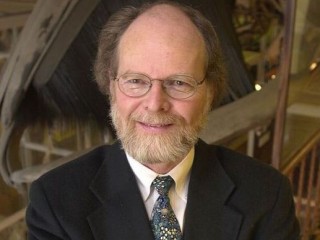
James J. McCarthy biography
Date of birth : -
Date of death : -
Birthplace :
Nationality : American
Category : Science and Technology
Last modified : 2011-12-19
Credited as : scientist, President of AAAS, Professor of Biological Oceanography
0 votes so far
McCarthy is Alexander Agassiz Professor of Biological Oceanography and former Master of Pforzheimer House. He is also Acting Curator of the Malacology Department in the Museum of Comparative Zoology.
His studies address factors that regulate the processes of primary production and nutrient supply in upper ocean, approached using controlled laboratory studies and field investigations. Study sites range from near shore to the open ocean. Recent and current field research sites include the North Atlantic, equatorial Pacific, and Arabian Sea.
He is on the faculty of the Harvard Medical School Center for Health and the Global Environment.
Quote from Science News February 2009 interview: The Maldives and Kiribati highlight a hidden challenge for coping with climate change\global Warming. Its not just about slowing the emissions of greenhouse gases. It's also about figuring out what to do for localities threatened with the possibility of extinction from [rising ocean waters. "They are like the canary in the coal mine in terms of the dramatic impact of climate change on a whole civilization of people" "They didn't cause the problem, but they will be among the first to feel it." The 2007 IPCC report took an extremely conservative approach to potential sea level rise, focusing on thermal expansion. It estimated that sea level increases could range from 0.2 to 0.6 meters by 2100. Experts cautioned, however, that these numbers were highly uncertain and probably underestimated the potential change. The IPCC analysis did not take into account the unexpectedly rapid rate of melting and decay of polar ice sheets, particularly in Greenland, that has been observed recently, or the prospect of accelerated breakdown of polar sheets in the future. "That's not something that was anticipated".
[edit] Biography
From 1979 until 2002 he was the Director of Harvard University's Museum of Comparative Zoology. He holds faculty appointments in the Department of Organismic and Evolutionary Biology and the Department of Earth and Planetary Sciences, and he is the Head Tutor for degrees in Environmental Science and Public Policy.
He received his undergraduate degree in biology from Gonzaga University, and his Ph.D. from Scripps Institution of Oceanography. His research interests relate to the regulation of plankton productivity in the sea, and in recent years have focused on regions that are strongly affected by seasonal and inter-annual variation in climate.
From 1986 to 1993, he chaired the international committee that establishes research priorities and oversees implementation of the International Geosphere-Biosphere Programme. He was the founding editor for the American Geophysical Union's journal Global Biogeochemical Cycles. He was involved in two of the recent international assessments on climate impacts. He served as co-chair of the IPCC, Working Group II, which had responsibilities for assessing impacts of and vulnerabilities to global climate change for the Third IPCC Assessment (2001). He was also one of the lead authors on the recently completed Arctic Climate Impact Assessment.
He is a Fellow of the American Academy of Arts and Sciences, and a Foreign Member of the Royal Swedish Academy of Sciences.
















